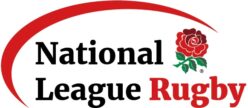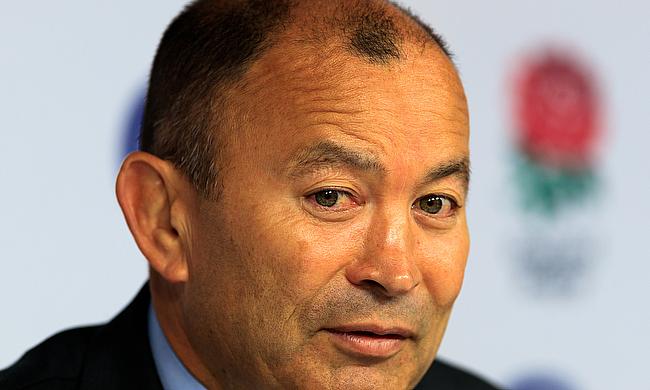Eddie Jones joins NCA clubs on England Rugby webinar
In an exclusive webinar with the NCA and community clubs across the game, England head coach Eddie Jones gave up an hour of his time to chat about the importance of grassroots rugby.
Joined by RFU CEO Bill Sweeney, Jones also provided some brilliant insights into coaching following some excellent questions from teams involved in the National Leagues as well as from our chairman, John Inverdale.
The England boss was quizzed about how he views the lower levels of rugby, but Jones was quick to highlight that the majority of his squad have all experienced the grassroots game and he believes there is nothing stopping players who are part of similar clubs from rising through the ranks.
Speaking on Monday evening, Jones said: “The national side is the top of the iceberg and it reflects what happens in the community game.
“Every one of the guys that play in the national team started at a community club. The skill level that they get at a community club dictates their progression through the grades. We’re more of a reflection of what happens at the clubs rather than the clubs learning from what we do.
“There is always the possibility [for players to progress]. Players select themselves. It is interesting when you look at the number of Championship players that are playing in the premier competition because of the opportunity they have got.
“If you are an aspirational player, you train hard, you work hard, you do well in one league and you move to the next league, and if you are good enough, you get selected. We’ve picked Harry Williams who was at Jersey before he moved to Exeter, Ben Moon, the same sort of thing so those players are increasingly coming through and you’ve just got to work hard and believe you can do it.
“Look at Mark Wilson. He was in the academy at Newcastle, dropped out, when to university, studied, then went back to Newcastle and worked hard! We selected him, he played well for us at the World Cup so those sorts of things are happening more and more.”
As Jones alluded to, the NCA have continually provided a platform for players to hone their skills and that is still very much the case with Premiership clubs sending their youngsters out on loan to National League sides in order to aid their development.
Vice-versa, former top-flight players have also used the National League environment to continue their careers and Jones feels both sides of the coin are beneficial for lower level clubs, providing the relationships are strong.
He added: “I think the term that springs to mind is ‘bionic.’ They [Premiership clubs and National League teams] have just got to work together to make sure the player goes in the correct direction.
Time for some more positive talk surrounding the National Leagues?
Director of Rugby Steve Diamond admits the lower tiers are a key part of player development at @SaleSharksRugby. #GallagherPrem #Nat1 #Nat2nhttps://t.co/Is04ah30xZ pic.twitter.com/h0pqP0ivAY
— NCA Rugby (@nca_rugby) December 11, 2018
“The professional club will want to make sure the strength and conditioning is good whereas the amateur club has got the chance to give them a great rugby experience. That is the best sort of mentorship there is so if they can work together to develop the player, that can only be positive for the player and both clubs too.
“In terms of those players who have played in the Premiership, if they come down and play at your club and they are good characters, they can give you so much value by passing on their experiences to the younger players. If they can do that, they can be fantastic investments for your club. Don’t worry about what they can do on the field, worry about what they can do off the field and that will make the biggest difference.”
Each National League club will be hoping to ‘make a difference’ when the 2020/21 campaign does eventually begin, but with the start of the season not taking place on the opening weekend of September, teams remain hard at work as they continue preparations ahead of the new term.
As things stand, we remain on Stage C of the RFU’s Return to Play Roadmap and with the future still an unknown due to the coronavirus pandemic, Jones was asked about how coaches can keep their squads engaged during this difficult and uncertain period.
“The one thing to focus on is the things that you can control,” Jones continued. The things that you can control is how well you coach the players and how well the players train.
“Focus on improving both of those aspects and specifically, what are the team areas that you need to improve? Pick out the three top areas you need to improve. Focus on those and you can rotate those week by week if you want to keep the theme new and then make sure for each player, you sit down with them and work out what area they can improve in. Keep everything focused on improving.”
RFU confirm the 2020/21 National League season will not commence in September
Full update here ⬇️https://t.co/Y2RdgjsWI0 #Nat1 #Nat2n #Nat2s pic.twitter.com/vYjtkzqWlh
— NCA Rugby (@nca_rugby) August 5, 2020
The RFU are set to make a further announcement regarding a start date for the 2020/21 season on September 1st and CEO Bill Sweeney told club representatives on the webinar, that the return of the community game remains a priority.
“The Championship and NCA clubs are still a critical part of our important pathway,” added Sweeney. I went to a lot of National One games last year. I was at Rosslyn Park, Richmond, Darlington, Chinnor and the quality of rugby is really good. I think there are more academy players in the Premiership playing in NCA then there are in any other league at the moment so it is a really important part of our game. If you don’t have a really strong community game, you don’t have an English game.
“On your lips I would think, are questions around when are we going to get the game up and running in the community side. We know it is really, really frustrating at the moment. When you see the Premiership kicking off as it did over the weekend and you see some of the other sports which are up and running in the community game, it is really frustrating that we haven’t got community rugby up and running as well at the same time.
“We are lobbying government every week about a return to community rugby. We know the importance of it to the clubs. We know how important it is to get the clubhouse’s open, to get some social events going and to get some revenue coming into the clubs and to get back to playing full-scale rugby again. We are really pushing hard on that front and will continue until we get a good solution coming out of that.”

